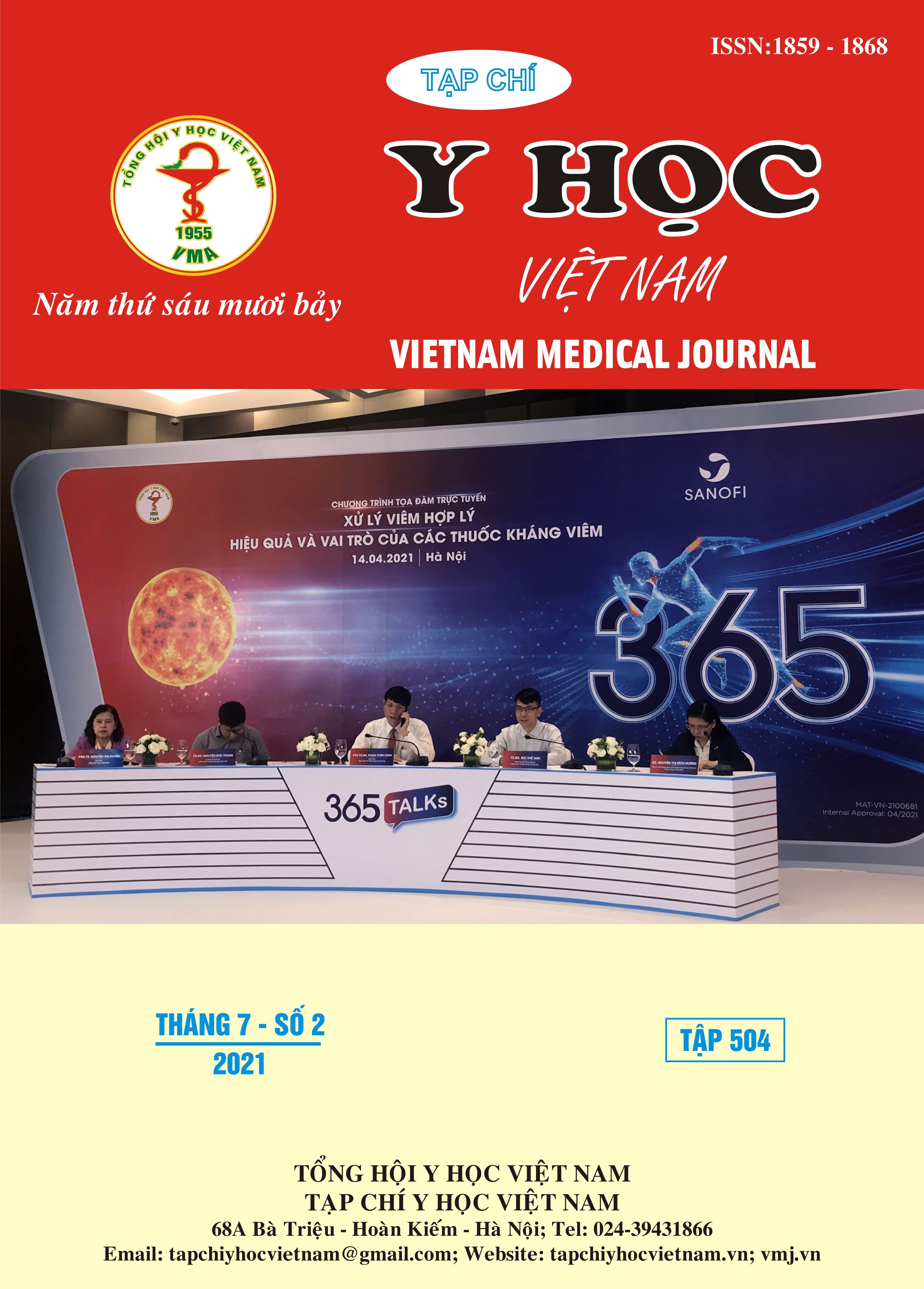EVALUATION OF THE SURGICAL RESULTS OF DISTAL GASTRIC BLEEDING CANCER
Main Article Content
Abstract
Bleeding due to distal gastric cancer is one of gastric cancer complications that require urgent treatment. Nowaday, the proportion of distal gatric bleeding cancer is elevated. More and more patients come with the late stage of gastric cancer and unstable hemodynamic, even though, that demanding urgent operation. We therefore conduct our restrospective study at abdominal surgery department No 2, K hospital from 1/2019 to 5/2021 aim at: (1) Describing the clinic feature of distal gastric bleeding cancer patients. (2)Evaluation of the early surgical results of distal gastric bleeding cancer. Patiens and Method: A retrospective study. Patients: All the patients who had surgical treatment of bleeding distal gastric cancer in abdominal surgery department No.2, K3 Hospital. Time: 1/2019 – 5/2021. Results: 46 patients including 34 males (73,9%), 12 females (26,1%). The average age: 65,72±10 (44-84 years old). 6,5% patients had urgent operation. Subtotal gastrectomy with DII lymph node dissection 87%, subtotal gastrectomy for hemostasis without lymph node dissection 8,7%, only suture for hemostasis 4,3%. Intraoperative and postoperative complications were 13%, 2,17% and postoperative mortality was 2,17%. Duration of hospitalization: 11,9±2,8 days. Overall results: Good 86,96%, moderate 10,87%, bad 2,17%. Concluction: Upper gastrointestinal bleeding due to distal gastric cancer is one of serious complications demanding intensive care and urgent operation. 100% patients had surgical treatment: Urgent operation 6.5%, delayed urgent operation 6.5%, elective operation 87.0%. Subtotal gastrectomy with DII lymph node dissection 87%, subtotal gastrectomy for hemostasis without lymph node dissection 8,7%, only suture for hemostasis 4,3%. The histopathologic characteristics: Adenocarcinoma 86,96%, signet ring cell carcinoma 13,04%; histological grade: G2 (23,91%), G3 (76,09%); AJCC stages: mostly stage III (56,52%). The mean operative time was 144± 38.2 minutes. Intraoperative and postoperative complications were 13%, 2,17% and postoperative mortality was 2,17%. Duration of hospitalization: 11,9±2,8 days.
Article Details
Keywords
Bleeding gastric cancer, Upper gastrointestinal bleeding
References
2. Vũ Hải (2009), Nghiên cứu chỉ định các phương pháp phẫu thuật, hoá chất bổ trợ và đánh giá kết quả điều trị ung thư dạ dày tại Bệnh viện K, Luận án Tiến sĩ y học, Học viện Quân y, Hà Nội.
3. Thái Nguyên Hưng (2020), Đánh giá kết quả chẩn đoán và điều trị xuất huyết tiêu hóa cao, Đề tài nghiên cứu khoa học cấp cơ sở, Bệnh viện K.
4. Kim Young-Il and Ju Choi Il (2013), "Endoscopic management of tumor bleeding from inoperable gastric cancer", Clin Endosc. 48, tr. 121-127.
5. Lei Wang , .et al. (2015), "Long-term outcomes after radical gastrectomy in gastric cancer patients with overt bleeding", World J Gastroenterol. 21(47), tr. 13316-13324.
6. Lucian Mocan, .et al. (2013), "Long Term Outcome Following Surgical Treatment for Distal Gastric Cancer", J Gastrointestin Liver Dis. 22(1), tr. 53-58.
7. Sheibani, S et al.(2013), “Natural history of acute upper GI bleeding due to tumours: short-term success and long-term recurrence with or without endoscopic therapy.” Alimentary pharmacology & therapeutics vol. 38(2), tr 144-150.


